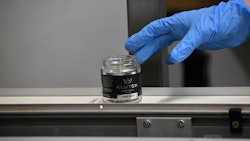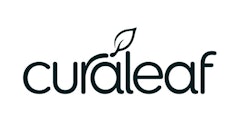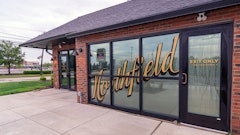
Editor's note: This article was updated at 11:30 a.m. July 3, 2024, to provide additional context from the Ohio Division of Cannabis Control about its review of financial interests, ownership and control for program licensees.
Editor's note: This article was updated at 10:30 a.m. July 2, 2024, to reflect a response from Firelands Scientific CEO Jeff McCourt, who told Cannabis Business Times the company has no 10(B) license interests in The Landing Dispensary's retail facilities in Cincinnati and Monroe, whose business applicant names, Aron OH LLC and Deaver OH LLC, applied for 10(B) dispensary licenses.
Choosing a cannabis dispensary’s location can be a make-or-break decision for business owners, who often consider accessibility, their target audience, nearby competition and the local cost of doing business.
In Ohio, a law preventing dispensaries from being located within 1 mile of one another has led to a competitive selection process for new retail sites in the state’s forthcoming adult-use market. But this process could face pushback.
That’s because four companies appeared to have gained an advantage in the June 21 lottery held by Ohio cannabis regulators to determine the order in which the state’s medical cannabis companies could select new dispensary sites for the adult-use marketplace. These new retail sites, called 10(B) dispensary licenses in Ohio, are separate from existing medical dispensaries that are already in the process of transitioning to “dual-use” licensure.
In other words, all 126 medical cannabis dispensaries in Ohio can transition to adult-use sales (aka the dual-use licensure). In addition, medical cannabis companies—cultivators and retailers—are eligible to receive additional dispensary licenses for facilities that don’t exist yet (aka the 10(B) licensure).
RELATED: Ohio’s Adult-Use Cannabis Sales Launch: What to Know
Specifically, Ohio’s Level I medical cannabis cultivators were eligible to enter the lottery for three 10(B) dispensary licenses each, while smaller Level II cultivators were eligible for one 10(B) dispensary license each—whether they already have dispensaries or not.
Meanwhile, existing medical cannabis dispensaries that don’t have “common ownership or control with any cultivator or processor” were eligible for one 10(B) license “per entity.” For instance, a company with three existing dispensaries and no cultivation or processing could apply for three additional 10(B) dispensary licenses (one per entity), expanding its footprint to six retail locations in Ohio’s marketplace.
Under Ohio law, the forthcoming adult-use marketplace has an eight-dispensary cap per company, which voters approved with a 57.2% majority in the November 2023 election.
While the majority of Ohio’s 98 medical cannabis companies that entered the June 21 lottery for 168 additional dispensaries applied for three or fewer 10(B) licenses, four outliers had lottery draw balls for more than three 10(B) licenses for their companies or in connection to their companies (potentially increasing their chances for higher rankings).
At issue here, companies were supposed to be eligible to enter the lottery as a cultivator or an independent retailer—not both:
- Farmaceutical RX, a Level I cultivator with three FRX-branded dispensaries in Cuyahoga Falls, East Liverpool and Elyria, had lottery draw balls for three 10(B) licenses under the Farmaceutical RX cultivation name, one under “Farmaceutical RX 2 LLC” for the company’s dispensary in East Liverpool, another under “FRX Health of Cuyahoga Falls LLC,” and a sixth under “NMG OH LLC” for the dispensary in Elyria. These six 10(B) licenses are in addition to its three existing medical dispensaries eligible for dual-use licensure, or nine dispensaries total between the company and its associated retail brands.
- OPC Cultivation LLC, a Level I cultivator doing business as Firelands Scientific with five existing medical cannabis dispensaries in Ohio, had lottery draw balls for three 10(B) licenses under the OPC Cultivation name, one under “Aron OH LLC” for the company’s The Landing Dispensary in Cincinnati, and a fifth under “Deaver Ohio LLC” for the company’s The Land Dispensary in Monroe. These five 10(B) licenses are in addition to its five existing medical dispensaries eligible for dual-use licensure, or 10 dispensaries total between the company and its associated retail brands. (Editor's note: Firelands Scientific CEO Jeff McCourt said his company doesn't have any involvement in the 10(B) license applications submitted by Aron OH and Deaver Ohio LLC. See more details below.)
- Parma Wellness Center LLC, a Level I cultivator acquired by Miami-based multistate operator Ayr Wellness Inc. in 2021, had lottery draw balls for three 10(B) licenses under the Parma Wellness cultivation name, one under “Twice the Wellness LLC” for Ayr’s dispensary in Woodmere, another under “Daily Releaf LLC” for Ayr’s dispensary in Riverside, and a sixth under “Heaven Wellness LLC” for Ayr’s dispensary in Goshen. These six 10(B) licenses are in addition to Ayr’s three existing medical dispensaries eligible for dual-use licensure, or nine dispensaries total between the company and its associated retail brands.
- Hemma LLC, a Level II cultivator owned by New York-based multistate operator Ascend Wellness Holdings, had lottery draw balls for one 10(B) license under the Hemma cultivation name and another three under “Ohio Patient Access LLC” for Ascend’s dispensaries in Cincinnati, Sandusky and Piqua. These four 10(B) licenses are in addition to Ascend’s five existing medical dispensaries eligible for dual-use licensure, or nine dispensaries total between the company and its associated retail brands.
Each of these companies had to demonstrate that their associated medical cannabis dispensaries did not have “common ownership or control” with their cultivation and processing operations in Ohio to be eligible to apply for the additional 10(B) licenses under their dispensary business names.
In other words, if Farmaceutical RX’s dispensaries in Cuyahoga Falls, East Liverpool and Elyria have common ownership or control with Farmaceutical RX’s cultivation and processing facility, then those three dispensaries—Farmaceutical RX 2, FRX Health of Cuyahoga Falls, and NMG OH—were not eligible to enter the 10(B) dispensary license lottery.
However, the Ohio Department of Commerce, under which the Ohio Division of Cannabis Control (DCC) operates, confirmed with Cannabis Business Times that Farmaceutical RX was eligible to enter the lottery under its cultivation and dispensary business names.
“Prior to the 10(B) drawing, Farmaceutical RX LLC submitted a change of ownership request to the division and received approval,” Jamie Crawford, public information officer with the Department of Commerce, said in a statement. “The division’s determinations on eligibility were based upon a review of records obtained by the division related to a review of each licensed medical marijuana entity’s common ownership and control.”
CBT followed up with the department to ask if Fireland’s Scientific, Ayr Wellness and Ascend Wellness also met this change of ownership or other criteria for eligibility.
Crawford said many companies are in similar change-of-ownership situations as Farmaceutical RX.
"The division conducted a review, in conjunction with outside counsel, of all licensee financial interest, ownership and control, in order to make determinations on eligibility for 10(B) licensure," he said. "This included a review of financial interest, ownership and control documentation that licensees were required to submit to the division. Information regarding ownership or control of a specific license ... reflects only a point in time, because licensees are permitted to seek approval from the division for a change in ownership or control."
CBT also reached out to all four companies directly. Firelands Scientific CEO Jeff McCourt responded after this article was originally published.
"As it relates to us, we have no interest in the additional 10(B)s. We didn't game the system," he said. "Deaver and Aron have their own process. It's their own business. They can do whatever they want with the 10(B)s. We are consulting with them. This has all been approved by the Department of Commerce. It's been fully disclosed, all of the relationships involved. There's no way that we end up with more than the statutory maximum, eight licenses, in the process."
Firelands Scientific is the parent company of The Landing Dispensary, which is the retail brand for both the Aron and Deaver stores, but McCourt said Firelands is not the company applying for the 10(B) licenses for those stores. In November 2023, shortly after The Landing Dispensary's Cincinnati store (Aron) opened, the company stated in a press release that the "Cincinnati location marks Firelands Scientific's fifth Ohio dispensary."
"We have a consulting relationship and [intellectual property] brand property with those stores to carry our banner," McCourt said. "But we do not have any association with the 10(B) licenses that they're applying for."
While all four companies were eligible to apply for 10(B) dispensary licenses as Level I (Farmaceutical RX, Firelands Scientific and Ayr Wellness) and Level II (Ascend Wellness) cultivators, the additional limited liability companies associated with their medical cannabis dispensaries may (or may not) have been a strategic move to gain a competitive advantage in Ohio’s site selection process.
"We've been completely transparent with the regulators," McCourt said. "We haven't gamed anything. We don't have any involvement in the 10(B) process for Deaver and Aron with respect to whatever new licenses they apply for."
Phase one of this selection process will begin July 8.
The June 21 lottery drawing was to determine the order in which companies choose their site locations for these additional dispensaries, and the significance is that dispensaries cannot be located within 1 mile of one another under Ohio law. Therefore, if multiple companies want a dispensary in the same strip mall, the company with the higher lottery drawing gets first dibs.
This geographic distribution of adult-use dispensary sites is an effort to ensure statewide access to all adult-use customers, even in rural areas, according to Ohio’s voter-approved ballot initiative.
“This is probably the part of the statue … that’s been given the most pushback,” Caveh Azadeh, co-founder of Cincinnati-based Level I cultivator King City Gardens, told CBT for a previous article.
“In rural areas, [it’s] not going to be an issue. I mean, you’ve got a lot of land to play with,” he said. “But in Cincinnati, for example, for us to be able to find sites in the Greater Cincinnati area has … been one of the biggest challenges we’ve had to navigate.”
Phase one of the site selection process on July 8 is reserved for each company to choose its first 10(B) dispensary site based on lottery order. Phase two is reserved for companies to select their second, third, fourth, etc., sites based on lottery order and is penciled in to begin in late July, according to the DCC.
Specifically, it’s unclear if “Farmaceutical RX 2,” which holds the No. 10 spot in the phase one lottery order, “NMG OH,” which holds the No. 51 spot, “Farmaceutical RX,” which holds the No. 69 spot, and “FRX Health Cuyahoga Falls,” which has the No. 71 spot, will all be eligible to choose sites in phase one of the selection process. The same goes for the other three businesses and their associated retail brand sites.
Moreover, will other Ohio cannabis industry stakeholders view this as an unfair advantage, particularly if one of these companies chooses a site that inhibits a lower-ranked applicant from choosing its preferred retail location?
Publicly traded cannabis companies with deep pockets that also have interests in Ohio’s 10(B) dispensary license process include Acreage Holdings, The Cannabist Co., Cresco Labs, Curaleaf, Green Thumb Industries, Insa, MariMed, PharmaCann, Trulieve and Verano.
Big or small, public or private, location remains key here in each dispensary’s pursuit to become a customer’s favorite place to shop: 36% of cannabis consumers listed location as the most common reason for where they shop, a preference that outweighed a store’s product variety, brand variety and prices, according to a November 2022 study Brightfield Group.
For the phase one site selection process, companies can submit up to three potential addresses for their top-ranking 10(B) dispensary license from the lottery. But if all three addresses are within a 1-mile radius of other proposed dispensary sites with higher lottery drawings, then a company wouldn’t secure its proposed locations and would drop to the bottom of the site selection list and have to try again for a different location.
James Leventis, the executive vice president of Legal, Regulatory Compliance and Government Affairs at Chicago-based multistate operator Verano, explained this selection process to CBT for a different article. Verano is a Level II operator with a cultivation and processing facility in Canton and five Zen Leaf dispensaries throughout Ohio.
Verano has five different limited liability company names for each Zen Leaf dispensary, but Verano only applied for the 10(B) dispensary lottery via its cultivation name. The majority of Ohio’s vertically integrated operators followed the same procedure.
“What they do is they pop your pin on a map, they draw a one-mile radius circle around your pin, and then they move on to the next applicant on their list,” Leventis said of the site selection process. “If you go through all three of your options and none of them happen to work, which is liable to happen as you get further down the list and people start drawing these big circles across the state, you basically get knocked down to the end of the list.”
This selection process could go multiple rounds if companies keep getting bumped to the bottom of the list, according to the DCC. Following phase two site selections, the actual permits for 10(B) retail facilities will be awarded by Sept. 7, according to the DCC.
Under current Ohio law, there could potentially be 350 cannabis dispensaries to serve Ohio’s adult-use marketplace. These include:
- 126 existing medical cannabis dispensaries with certificates of operation that are in the process of converting to dual-use licensure and six with provisional licenses that could potentially convert to adult-use sales later on;
- 168 additional 10(B) dispensary licenses applied for by current medical cannabis licensees that had to enter the lottery for sites to be determined; and
- 50 new dispensary licenses that Ohio’s voter-approved initiative requires the DCC to issue to the program “with preference to applicants who are participants under the cannabis social equity and jobs program.”
This is the equivalent of roughly three dispensaries per 100,000 residents in Ohio, a relatively low rate compared to more mature adult-use markets like Oregon (approximately 20 dispensaries per 100,000 people), Colorado (14 per 100,000), Michigan (7.5 per 100,000) and Massachusetts (4.5 per 100,000), according to CBT research.
Industry intelligence provider BDSA projects Ohio’s cannabis market to reach $1.65 billion in sales by 2027, which could mean an average of nearly $5 million in annual revenue per Ohio dispensary.
But, largely depending on location, some dispensaries will sell more cannabis than others.

























